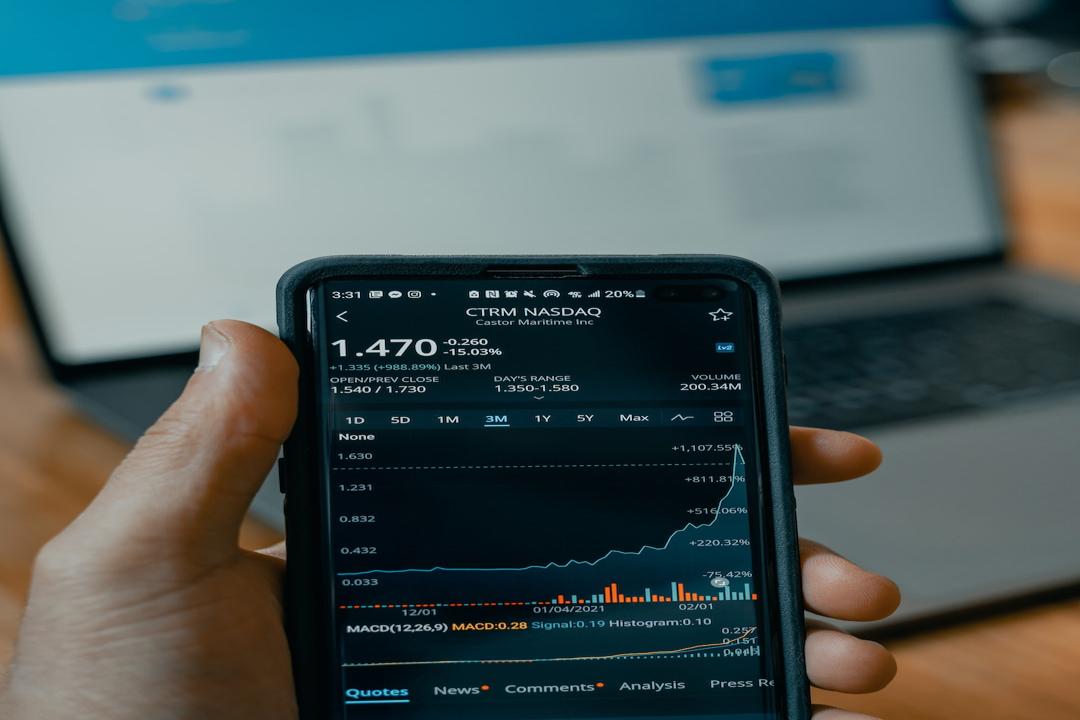The Coin World reported:

Shanghai, China – Since the collapse of the Mt. Gox exchange, creditors have been waiting for 10 long years.
On June 24th, the Mt. Gox trustee announced that the repayment of Bitcoin (BTC) and Bitcoin Cash (BCH) will begin in early July 2024. Data shows that as of June 24th, the Mt. Gox trustee holds about 140,000 Bitcoins, worth approximately $9.26 billion.
The enormous BTC repayment plan has become the “Sword of Damocles” hanging over the cryptocurrency market. Liu Chunsheng, associate professor at the Central University of Finance and Economics, told a reporter from the “Huaxia Times” that the repayment by the Mt. Gox trustee, due to the large amount of Bitcoin and Bitcoin Cash held, could lead to a significant amount of tokens being sold in the market, thus putting downward pressure on prices.
Liu Chunsheng pointed out that the bankruptcy of Mt. Gox and other exchanges has raised concerns about the security of cryptocurrency exchanges among investors, and has also exposed the risks of the cryptocurrency market. These events serve as a warning for investors to understand and comply with relevant laws and regulations, and to choose exchanges with good reputations and strict supervision for trading.
One of the biggest setbacks in the cryptocurrency market
According to the announcement, the trustee is prepared to initiate repayment procedures with various cryptocurrency exchanges as required by the rehabilitation plan. The trustee stated that they have confirmed and exchanged the necessary information with the related exchanges to ensure the security and compliance of the repayment. The specific repayment will be performed in accordance with the completion order of the information exchange with each exchange.
Under the repayment plan, Mt. Gox needs to distribute 142,000 BTC, 143,000 BCH, and 69 billion yen to creditors.
Mt. Gox was once the world’s largest Bitcoin exchange, headquartered in Tokyo, Japan, founded by Jed McCaleb in 2010 and later acquired by French developer Mark Karpeles in 2011. In 2013, the price of Bitcoin surged from $13 to $1,100, and Mt. Gox quickly became the world’s largest Bitcoin trading platform, occupying 70% of the market share at its peak.
However, the good times didn’t last long. On February 7, 2014, Mt. Gox suddenly announced the suspension of all Bitcoin withdrawals, citing the need to reorganize its currency flow, which did not attract much attention from users at the time. However, 17 days later, Mt. Gox not only suspended all trading, but also made its website inaccessible.
Subsequently, an internal company document revealed that hackers had attacked Mt. Gox, stealing 744,000 Bitcoins from Mt. Gox customers, as well as an additional 100,000 Bitcoins owned by the company, totaling 850,000 Bitcoins valued at about $450 million at the time. Shockingly, this large-scale attack was not the first; Mt. Gox had lost up to 80,000 Bitcoins before 2011.
As a result of this event, the cryptocurrency market suffered a crisis of trust, and the price of Bitcoin plummeted by two-thirds. Mt. Gox filed for bankruptcy in 2018 and started the rehabilitation process to compensate affected creditors.
It is worth noting that the market still does not know the full story of the Mt. Gox incident. Karpeles, the CEO of Mt. Gox at the time, was charged with fraud and embezzlement in early 2015. Before he was imprisoned, he admitted to finding 200,000 missing Bitcoins and storing them in a cold wallet. However, subsequent tracking of the wallet revealed that the Bitcoins had been evenly distributed to 100 other wallets.
As of 2019, Mt. Gox had retrieved a total of 141,000 Bitcoins, which the court ruled should be handed over to a trust, managed by Nobuaki Kobayashi, the trustee, who coordinated the distribution of the funds to creditors.
In 2022, the Mt. Gox Bitcoin repayment program was accepted by the court. In September 2023, the deadline for the basic repayment, lump-sum repayment, and midterm repayment, originally set for October 31, 2023, was extended to October 31, 2024. According to the repayment notice issued by Mt. Gox at the end of 2023, they offered basic and proportional repayment plans to creditors.
In December 2023, several creditors, including the founder of Japan’s leading exchange bitFlyer, Yuzo Kano, announced on social media that they had received partial compensation, in the form of Japanese yen, without involving token compensation such as BTC. In January 2024, a creditor from Poland also stated that they had received repayment, with 80% of their claim returned in USD via a bank transfer.
Cryptocurrency research firm K33 Research cautioned cryptocurrency users that while creditors are unlikely to collectively sell the repaid Bitcoins, and repayment does not necessarily equate to selling pressure, creditors may choose to continue holding them. However, this could be an important factor causing short-term market instability.
“The Mt. Gox repayment will certainly bring some selling pressure to the market, but theoretically, it should not have a dramatic impact on the price of Bitcoin,” said Jiang Zhaosheng, a senior researcher at Oke Cloud Chain Research Institute, to a reporter from the “Huaxia Times.” According to data from OKLink, the proportion of Bitcoin held for over a year has reached nearly 70%. This means that most investors have confidence in the long-term value and potential of Bitcoin and are unlikely to panic and sell even in the event of market fluctuations or downturns, providing the most solid price support for the Bitcoin market. Additionally, not all Mt. Gox creditors will immediately sell their Bitcoins upon receiving repayment, so the selling pressure may not be as significant as imagined.
Jiang Zhaosheng further stated that since the approval of the Bitcoin ETF by the US SEC in early January, Grayscale has sold over 1 million Bitcoins, but the market has absorbed such large-scale selling and has shown significant resilience and recovery. Therefore, the impact of the Mt. Gox repayment on the market may not be as significant as imagined. On the contrary, once the Mt. Gox repayment is completed, it is expected to strengthen investor confidence in the cryptocurrency market and enhance the adaptability of the Bitcoin ecosystem to large-scale Bitcoin flows, providing a solid consensus foundation for long-term stability.
Investors still need to be cautious
After the bankruptcy of Mt. Gox, the cryptocurrency market entered a two-year slump. History repeated itself in 2022, when FTX, the second-largest cryptocurrency exchange at the time, collapsed, once again triggering a crisis of trust in the entire cryptocurrency market.
On May 7th, FTX also announced a bankruptcy compensation plan, where all creditors can recover their full principal with varying amounts of interest. It is expected that 98% of creditors will receive 118% of their claim amount, and the rest will be able to guarantee 100% recovery of the principal. The claim amount will be calculated based on the shareholding of creditors at the time of FTX’s application for bankruptcy protection in November 2022. In addition, the company will pay out tens of billions of dollars in interest to customers as compensation for the time value of their investment.
Despite the imminent repayment to creditors and the recent surge in Bitcoin prices, the bankruptcies of Mt. Gox and FTX have left a lasting shadow on the cryptocurrency market.
“The bankruptcy of exchanges like Mt. Gox and FTX has caused a severe shake-up in the cryptocurrency market, resulting in significant losses for investors and raising concerns about the security and regulation of cryptocurrency exchanges,” said Chen Qiaoyi, an expert at the Conde Think Tank and a lawyer at the Shanghai Guangming Law Firm, to the “Huaxia Times.” These events have reduced investors’ trust in the cryptocurrency market and affected its overall development.
“These events serve as a warning that the security and compliance of cryptocurrency exchanges are critical as the market’s infrastructure. When choosing an exchange, investors should consider its security, compliance, and risk tolerance,” said Chen Qiaoyi. Chen Qiaoyi believes that strengthening the regulation and self-discipline of exchanges, improving laws and regulations, and increasing market transparency are important ways to ensure the security of the cryptocurrency market. At the same time, investors should enhance their self-protection awareness, learn to diversify their investments, manage risks, and preserve and increase their assets.
“The compensation plan for Mt. Gox brings a ray of hope to affected investors,” said Wu Gaobin, Secretary General of the World Digital Technology Institute and Executive Secretary of the World Academician Expert Association. Initially, the bankruptcy of Mt. Gox resulted in the loss of hundreds of millions of dollars and affected thousands of investors. This compensation plan is expected to partially recover the losses for these victims, enhancing confidence in the cryptocurrency market.
Wu Gaobin further stated that the compensation from Mt. Gox also reflects the fragility of the cryptocurrency market. From Mt. Gox to FTX, the bankruptcy events of exchanges have repeatedly caused significant upheavals in the cryptocurrency market, greatly impacting investor sentiment. These events serve as a warning that the infrastructure of the cryptocurrency market is not yet perfect, and the security and reliability of exchanges need to be improved.
In the face of such a market environment, investors need to be more cautious in their future investment decisions. Investors need to conduct thorough investigations into the security of exchanges and choose reputable, strong exchanges for investment. Additionally, strict regulation by regulatory agencies will have a profound impact on the market.
“Wu Gaobin stated that China has made certain achievements in the regulation of cryptocurrencies. For example, China has clearly prohibited cryptocurrency trading, effectively preventing the risk of exchange bankruptcies. In the future, we look forward to regulatory agencies continuing to enhance international cooperation to jointly combat illegal activities in the cryptocurrency market and protect the legitimate rights and interests of investors.
“The increasingly strict cryptocurrency exchange regulatory policies worldwide reflect the firm attitude of regulatory agencies towards the standardized development of the cryptocurrency market,” said Zhi Peiyuan, a master’s student enterprise mentor at China University of Mining and Technology (Beijing), to the “Huaxia Times.” This trend not only requires cryptocurrency asset trading platforms to enhance compliance, internal control, and risk management, but also emphasizes the importance of investor protection and market transparency.
Managing Editor: Xu Yunqian Chief Editor: Gong Peijia
Subscribe to Updates
Get the latest creative news from FooBar about art, design and business.
The DecadeLong Mentougou Incident Nears Its Conclusion MtGox Repayment Imminent 9 Billion SellOff Looming
Add A Comment

